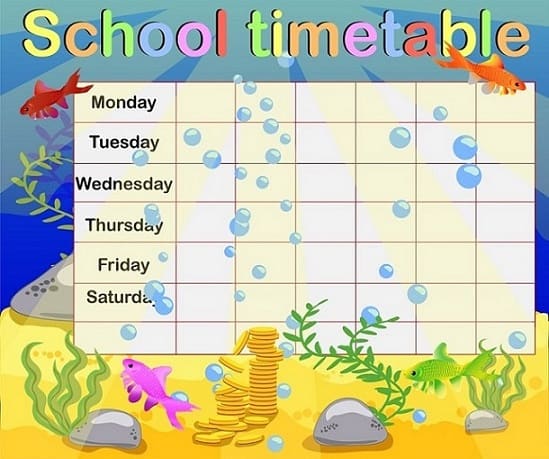Looking for an unbiased homeschool resource that doesn’t have a hidden agenda? You’ve come to the right place to learn how to homeschool in Pennsylvania.
To homeschool in Pennsylvania, a parent or guardian should become familiar with Pennsylvania homeschooling laws and regulations. Families must decide on a curriculum that fits their needs and be prepared for the self-discipline required to maintain a robust academic schedule.

How to Homeschool in Pennsylvania
Homeschooling in Pennsylvania is regulated by the Pennsylvania Department of Education. Here is a general overview of the process:
- Notify the school district: Parents or guardians who wish to homeschool their children in Pennsylvania must notify the school district in which they reside in writing of their intent to homeschool. This notification must be submitted within 15 days of the start of the homeschool program.
- Develop a curriculum: Parents or guardians must develop a curriculum for their homeschool program that includes, at a minimum, the subjects required to be taught in public schools. These subjects include reading, writing, language arts, mathematics, science, social studies, art, music, and physical education.
- Keep records: Parents or guardians must keep records of their homeschool program, including attendance records, a list of the subjects taught, and a portfolio of the work completed by their children.
- Administer evaluations: Parents or guardians must administer evaluations to their children at least once a year to assess their academic progress. These evaluations may include standardized tests or evaluations by a certified teacher.
- Submit annual reports: Parents or guardians must submit an annual report to the school district detailing the progress of their children in the homeschool program. This report must be submitted by August 1st of each year.
It is important to note that homeschooling laws can vary from state to state, so it is important to familiarize yourself with the specific requirements in Pennsylvania.
If you have any further questions about homeschooling in Pennsylvania, you may want to contact the Pennsylvania Department of Education or a local homeschooling support group for more information.

Free Pennsylvania Homeschool Programs
Pennsylvania offers a variety of free homeschooling programs that are an attractive option for families who are looking to give their children an alternative educational experience. These programs offer parents-certified teachers for supervising lessons and reviewing online courses, as well as other resources and support.
Pennsylvania homeschooling programs typically offer discussion forums and curriculum-based activities, as well as opportunities for real-world experiences such as field trips and art projects.
By using the resources of Pennsylvania’s community, these no-cost homeschool programs are a great opportunity for families to help their kids reach their goals.
To access extra help for homeschooling in Pennsylvania, visit the Pennsylvania Department of Education website.
Parents looking for resources on homeschooling in Pennsylvania should check out the Home School Legal Defense Association (HSLDA). They have helpful webinars, articles, and updates on laws related to homeschooling.
Between 2019 to 2020, the percentage of homeschooled students changed from 3.4% to 9%.
Does Homeschool Have to be Accredited in Pennsylvania?
Pennsylvania does not require homeschoolers to become accredited. Parents may choose to have their child’s homeschool curriculum reviewed and accredited by an agency if they believe it provides an advantage.
Under Pennsylvania’s Home Education Law, parents must submit a yearly notice of intent to homeschool and keep student records as prescribed in the law. They must also build an education portfolio as described in the law.
Accreditation is not required, but it affords parents an extra way of verifying that their homeschool meets state standards, if necessary.
The home education law already provides an extensive range of choices, and this could be an excellent addition.
67% of the homeschooled students successfully graduate from college.
Pennsylvania Accredited Homeschool Programs
Accredited homeschools must provide proof of enrollment and attendance, maintain grade records, administer state-approved annual standardized tests, have a supervising teacher with a high school diploma or higher, and stay informed about curriculum changes.
Private schools must include an admissions policy that details their compliance with applicable state laws and regulations in order to remain within the bounds of compulsory attendance laws.
An accredited homeschool can provide children with an excellent education in the comfort of their own homes.

Create a Designated Learning Place
Homeschoolers should have a specific area set aside for learning, to help establish a daily routine and provide an environment where their child can concentrate on schoolwork.
A dining table is an ideal spot for studying. It’s easily cleared off at the end of each day which allows it to be used for eating as well.
You can also provide your child with their own desk in their bedroom for added privacy and the opportunity to decorate it. Whatever you decide, be sure to create an environment that helps them focus on learning.
Over 300 million students were homeschooled as a result of the COVID-19 pandemic.
Stay On Track with a Daily Schedule
Sticking to a daily schedule for homeschooling has many advantages; here are some of them:
- Establishing a daily routine can help homeschoolers prioritize tasks, complete more in less time, and improve productivity. Families with multiple students or other outside commitments may particularly benefit from this strategy.
- Effective time management begins with planning. A daily schedule makes it easier to keep track of what needs to be done and when, and prevents feeling rushed or overwhelmed. Allocating specific blocks of time to tasks can help your family stay organized.
- Homeschooling can provide a sense of structure and regularity, especially beneficial for kids accustomed to attending a traditional school. This can make them feel safer and more prepared to learn.
- Families can benefit from daily schedules to stay accountable and meet their homeschooling objectives. This is important for those who tend to be easily distracted or delay their tasks.
- Having a daily schedule in place can facilitate better communication among family members, helping to avoid misunderstandings and building a stronger bond between them.

Ease Into It
Homeschooling for new parents can be a big shift, so it’s crucial to not apply excessive pressure from the start. It is best to ease into this transition and move forward at a steady pace.
Homeschooling parents can begin with just a few basic supplies and then build on their resources as they get more confident with the homeschooling process.
When it comes to homeschooling, there are numerous options, so you should find one that works best for your family. Don’t be afraid to venture out and experiment with different techniques; the less stressed you feel, the more successful your learning experience is likely to be.
Regardless of the educational level of their parents, homeschooled students score between 80% and 90%.
Involve Your Child in Setting Learning Goals
Involving your child in homeschool assignment planning and curriculum scheduling is important for several reasons:
- Offering students a sense of importance and ownership in their education will provide them with motivation and boost engagement.
- Involving them in the homeschool process will help them feel that they are part of it, rather than it being done to them.
- Getting your child involved in the homeschooling decision-making will give you a better understanding of their likes, talents, and shortcomings; allowing you to modify the learning environment to better accommodate them.
Generally, having your kid involved in homeschooling planning is key to a successful experience for everyone.

Explore Other Ways of Learning Outside the Classroom
Homeschooled kids have an advantage as they can explore many educational possibilities not found in a regular school. This helps them gain a diverse range of knowledge and experience, resulting in a more comprehensive education.
In many cases, homeschoolers benefit from strong connections in the community. These relationships can open doors to new learning opportunities, such as classes and workshops taught by experts or members of the community.
Parents who homeschool their children should seize these chances to broaden their kids’ education.
Homeschooling families can give their children a very enriching education by exploring different learning techniques.

Reach Out to Other Homeschool Families
Homeschooling can be difficult, especially for families without a support system. Luckily, there are various ways to make connections with other homeschoolers and build a community. One way is by connecting with local homeschooling organizations.
Homeschool groups can provide emotional support, practical advice from experienced homeschoolers, and opportunities for field trips and social interactions.
Joining an online forum or Facebook group is an excellent way to network with other homeschool parents.
Joining a parenting group can be helpful for exchanging resources, asking questions, and obtaining advice from parents who have the same experiences.
Making connections with other homeschooling families can help parents lessen the feeling of isolation and build a supportive environment for their kids.
When educated at home rather than in public schools, boys do 44% better on reading examinations.
Can Homeschooled Students Play Sports in Pennsylvania?
The Pennsylvania Department of Education states that homeschooled students can take part in section 511 activities, such as sports, provided they meet the same eligibility criteria as public school students.
Although it is not mandatory, many homeschooled families believe that taking part in sports is a valuable part of their child’s learning experience.
Playing sports has physical benefits, and homeschooled athletes can gain important social skills and learn how to work as a team.
Homeschooling parents can explore numerous options for their children to play sports.
Homeschooled students have several opportunities to participate in sports, such as those offered by local recreation departments and private homeschool athletic leagues.
Pennsylvania athletes who are homeschooled have the same opportunity to participate in athletics as those who attend public schools.
With some research, homeschoolers can find the perfect program that fulfills their requirements and gives their kids a comprehensive education.

How to Homeschool When Both Parents Work
Pennsylvania parents who opt to homeschool their children have to be creative with balancing work and school, as it is a difficult task.
With some ingenuity, it’s possible to work and homeschool at the same time. Let’s examine some pointers to help you achieve it.
Prior to February 2020, just 68% of parents who had homeschooled their children said it had been a success.
Get Your Childcare Involved
Some parents are lucky enough to have assistance in homeschooling while they’re away at work due to childcare.
When it’s not achievable or budget-friendly for all households, one should think outside the box to devise a plan that fits everyone’s needs.

Delegate Chores
Involving your children in household tasks is an effective method to reduce the strain you may be facing between work and homeschooling. It also provides them with an opportunity to learn about responsibility.
It’s prudent to be mindful of your child’s abilities. A five-year-old probably won’t be able to do the laundry, but they can lend a hand with things like dusting or laying the table.
As they age, give your children more chores. By involving them in household tasks, you can reduce your work while teaching them essential life skills.
Before the epidemic, 69% of homeschooled children expressed a desire to continue their studies in this manner for the upcoming school year.
You and Your Spouse Work Alternate Shifts
Balancing homeschooling with both parents working can be difficult, especially if you and your partner have alternating shifts. Here are some strategies to help make it work:
- It’s important to organize your week in advance by creating a schedule that includes all of your work hours and other responsibilities. This will help you plan effectively for homeschooling.
- Make use of online materials: Utilizing online components like lesson plans, videos, and virtual excursions can be a great way to supplement your kid’s schooling when you are not able to be with them in person.
- Be flexible with your homeschooling: If your daytime commitments don’t make 9 to 3 schooling feasible, think outside the box. For instance, you can do lessons at night or at the weekend. Or, break up the day into shorter chunks of time for educational activities.
- Ask for assistance: Don’t be scared to look for support when you need it. This could involve employing a tutor or nanny to aid with home-based instruction while you are busy, or requesting the aid of relatives and friends.
- Homeschoolers should be aware that it’s okay to take breaks. Finding a balance between work and homeschooling will help ensure that commitments are met on both fronts.
Homeschooling can be a tricky task if both parents are working. But it can be done with the right amount of planning and creativity, making it an enriching experience for the whole family.

Take Advantage of Online Curriculums
Homeschooling is a great option to personalize your child’s education, yet it can be difficult to fit work and school into one schedule. To make it easier, why not opt for an online curriculum?
Structured learning programs can assist your child in their development and ensure concentration while you are away.
Furthermore, online learning can be tailored to your child’s individual requirements, making it convenient to discover a course that suits their distinctive learning approach.
In their children’s upcoming academic year, 54% of parents who were homeschooling before February 2020 were likely to do so full-time.
Assign the Child Solo Activities to Do While You’re at Work
Parents in Pennsylvania who teach their kids at home must find ways to keep their children entertained while they are working. One way is to assign independent curriculum projects.
Tasks such as reading assignments, research projects, and math and writing exercises may be included.
It’s essential to select activities that are suitable for your child’s age and skill level.
If your child attends childcare, ask your provider to remind them to complete their homeschooling tasks daily.
Proper planning can help your child become independent and accomplish tough tasks during the workday.

Allow Yourself Flexibility and Grace
Balancing a job and homeschooling can be difficult for parents, so it’s vital to give yourself some leniency and kindness while managing these duties.
Striving for perfection is an unattainable goal that can lead to disappointment. Focus on the successes, no matter how small, and congratulate yourself on your achievements.
Keep in mind that your kids are observing you, and will take after you. By displaying a positive outlook and openness to change, they’ll be more likely to do the same.
Balancing work and homeschooling can be difficult, but it also presents an excellent opportunity to impart valuable lessons to your children. Show them how to be adaptable and graceful in any situation, setting them up for victory down the line.
The typical cost of homeschooling is between $350-$750 per year for the parent(s).
Pennsylvania Homeschool Curriculum Requirements
In Pennsylvania, parents of homeschooled children must provide instruction in all major academic subjects, such as:
- Reading
- Writing
- Math
- Science
- Social studies
- Physical education
Homeschooling provides families with many options, such as focusing on individual areas of study or incorporating different learning styles.
Because of the ability to customize their children’s education, homeschooling can be an effective educational solution for families in Pennsylvania.

Letter of Intent to Homeschool in Pennsylvania
According to the Pennsylvania Department of Education, a Letter of Intent to Homeschool is obligatory. This letter ensures that each homeschool complies with local school district regulations.
This ensures that homeschooling is in accordance with the state’s mandatory education regulations.
Every year, the Letter of Intent for homeschooling must be signed by a parent or guardian and submitted.
Pennsylvania not only demands a Letter of Intent, but also attendance, immunization, and progress reports to be kept for a minimum of three years. Such records can be requested by the school district at any time.
Following these standards will ensure that homeschooled students get a quality education and meet their school attendance obligations.
The federal government saves $24 billion in taxpayer money thanks to homeschooling.
Is the Pennsylvania Homeschool Curriculum Free?
More and more families from Pennsylvania are deciding to homeschool their children for various reasons. The cost of the curriculum is one of the major worries they face but luckily, there are myriad free homeschool curricula and resources available online.
By doing a quick internet search, you can find many websites that provide free educational materials, such as lesson plans, worksheets, and comprehensive learning programs.
Homeschooling families can often take advantage of discounts or free memberships offered by educational organizations.
By taking some time and putting in the effort, you can homeschool your kids without spending too much money.

How Much Does It Cost to Homeschool in Pennsylvania?
Home education costs in Pennsylvania depend on the family’s requirements and budget. There are inexpensive options, like public library books and online materials, accessible to families who choose to homeschool.
Investing in educational materials and resources can cost anywhere from a few hundred to several thousand dollars.
Homeschooling is a great way for families to save money since they don’t have to pay for childcare or school tuition. However, it’s important to keep in mind that homeschooling does require some initial effort on your part.
When planning for their family, individuals should think about if they need to buy any equipment, like a computer or printer.
In Pennsylvania, the cost of homeschooling varies depending on each family’s specific requirements and preferences.
A safe environment was cited as the main motivation by 50% of parents who homeschool their children.
How Many Days Are Required for Homeschool in Pennsylvania?
In the state of Pennsylvania, there are a few requirements that must be met in order to homeschool legally. One of these requirements is ensuring that the child receives 180 days of instruction. This can be done through online courses, independent study, or traditional homeschooling.
There are also a number of ways to count attendance, such as by calendar days or clock hours.
As long as the child receives the required amount of instruction, it does not matter how the days are counted.

Pennsylvania Homeschool Record Keeping
Pennsylvania Homeschool Record Keeping is an important part of every homeschool parent’s responsibilities. It not only helps to ensure that each child is receiving a quality education, but it also provides a record of the child’s academic progress.
Additionally, homeschool record keeping can be used to demonstrate compliance with the state’s homeschooling laws.
In order to maintain accurate records, Pennsylvania homeschoolers must keep track of a variety of information, including attendance, coursework, and standardized test scores.
Here are some things that are important to keep a record of during the homeschooling years:
- Test results
- Samples of your student’s academic work
- Documentation of the type of curriculum being provided to your child
- Dialog with state and/or school officials
- Attendance records
A good rule of thumb is to save these records for at least two years or longer if required.
While this may seem like a lot of work, taking the time to properly document your homeschool journey will pay off in the long run.
Test results, extracurricular activities, and socialization were mentioned as reasons for homeschooling by 14% of the parents.
Pennsylvania Homeschool Diploma
For homeschooled students in Pennsylvania, earning a diploma can be an even greater accomplishment. Homeschooled kids don’t have the structure of a regular school schedule, so they have to be self-motivated and disciplined to do well. A high school diploma is a symbol of hard work and dedication.
Earning a diploma shows that they have what it takes to set goals and achieve them.
In addition, a diploma for Pennsylvania homeschoolers can open up new opportunities, such as colleges and scholarships.
For homeschooled students, a high school diploma is an important milestone on the road to success.

How Does a Homeschooled Student Get a Diploma?
Parents in Pennsylvania who homeschool their children have the unique opportunity to be the sole provider of their child’s high school diploma. This means that they get to decide what criteria must be met in order for their child to earn the diploma.
Of course, parents will want to ensure that their child meets all the necessary requirements for graduation, such as taking required courses and passing exams.
However, they also have the freedom to tailor the curriculum to their child’s interests and learning style.
As a result, homeschooled students often emerge with a well-rounded education that prepares them well for success in college and beyond.
Before COVID-19, 42% of parents said they wished their kids had more freedom to pursue their hobbies.
Are Homeschool Diplomas Valid?
The homeschooling movement has been growing steadily recently, as more parents opt to educate their children at home. While homeschooling can provide a number of benefits, there is one potential drawback: homeschool diplomas may not be as recognized by colleges or employers.
Some institutions may require additional testing or coursework for homeschooled students, so students should be prepared to take some tests to show their level of academics.
It’s not uncommon whatsoever for homeschooled kids to be more academically advanced than their peers who attended a public school, so in the long run, homeschoolers are quite capable of holding the advantage.
However, it is important to note that homeschool diplomas are becoming increasingly common and should be accepted by most colleges and employers.
As of February 2020, at least 9 million Americans had been homeschooled at least once.
Disclaimer
Although the information in this article was researched with the utmost integrity and sincerity, it cannot be held legally liable or expected to take the place of legitimate legal advice for your specific situation.

Trina Greenfield, Author
SmackDown Media LLC
LinkedIn
About the Author:
Trina Greenfield, the owner of SmackDown Media LLC, is passionate about providing information to those considering their educational options. Trina is a seasoned writer, content creator, and website owner with a passion for unbiased research, educational platforms for children and adults, as well as all things family-related.